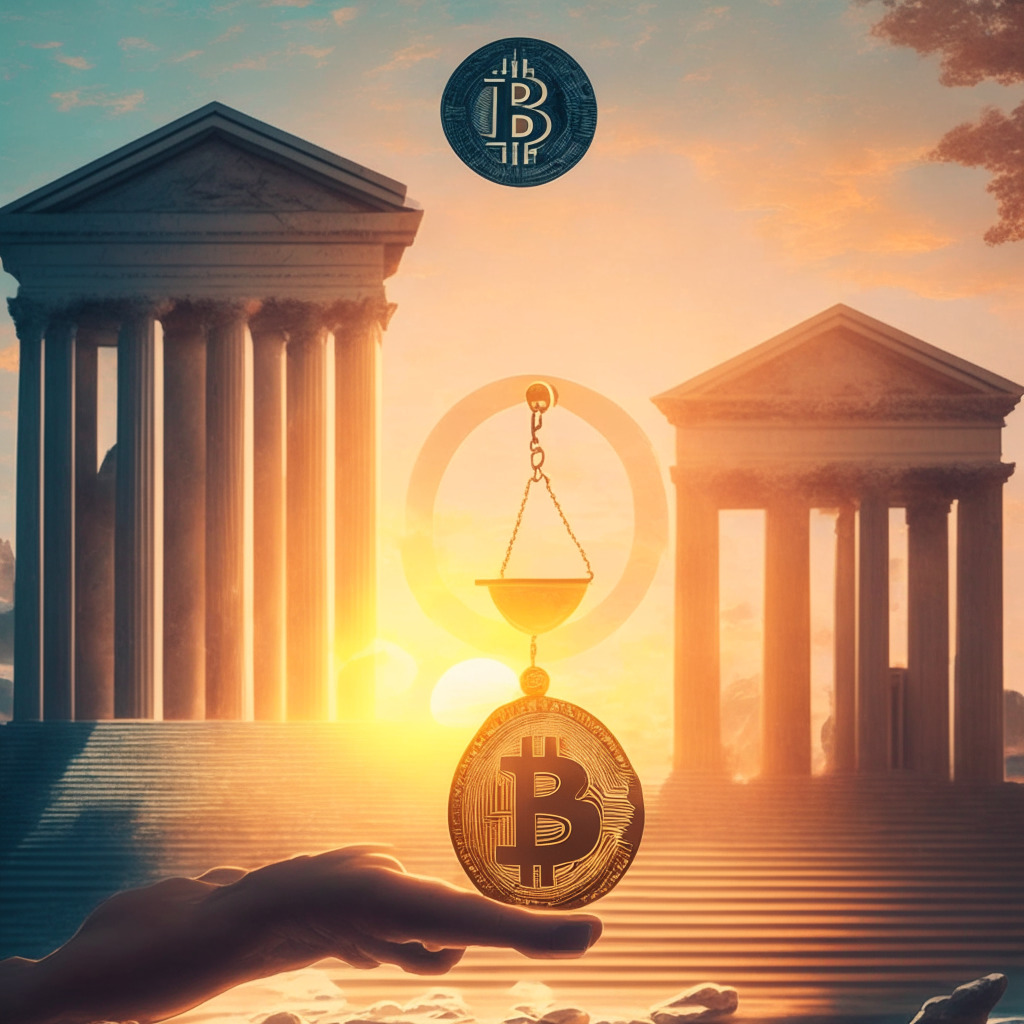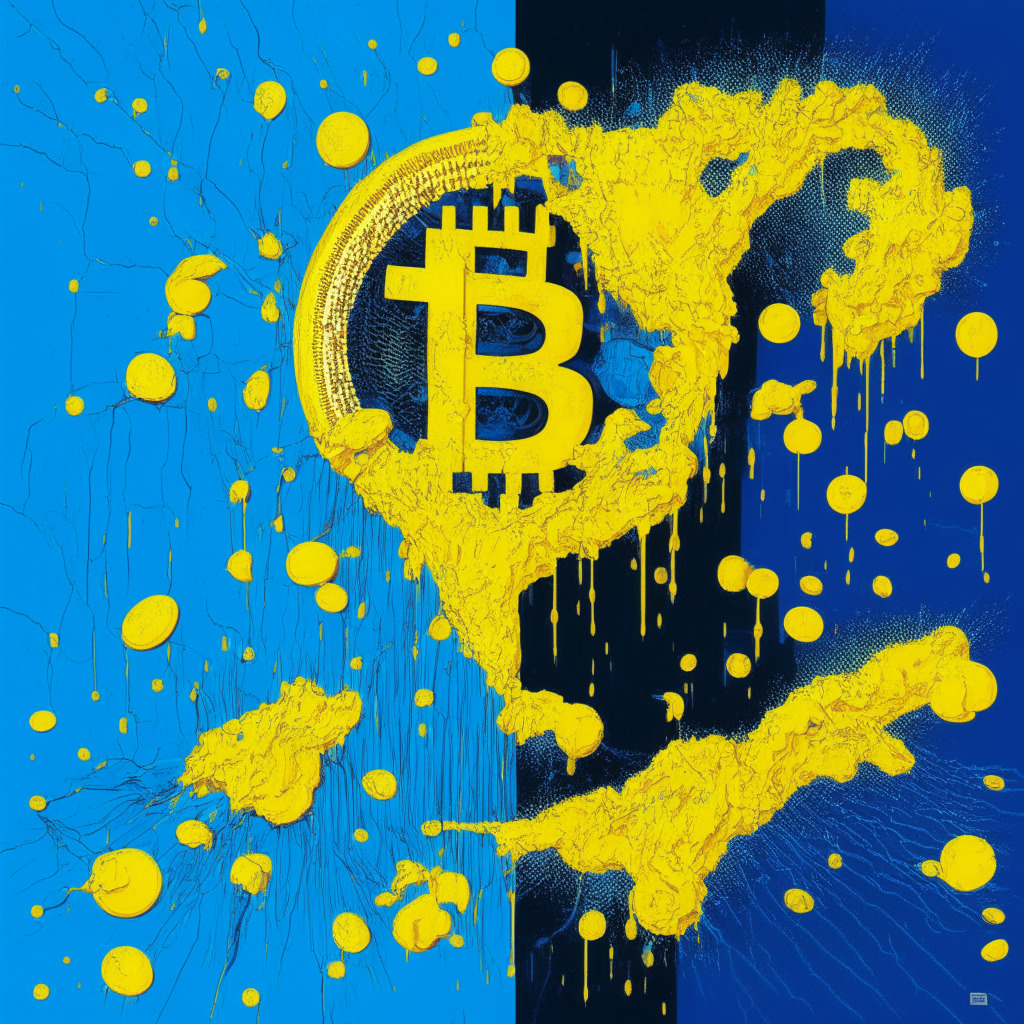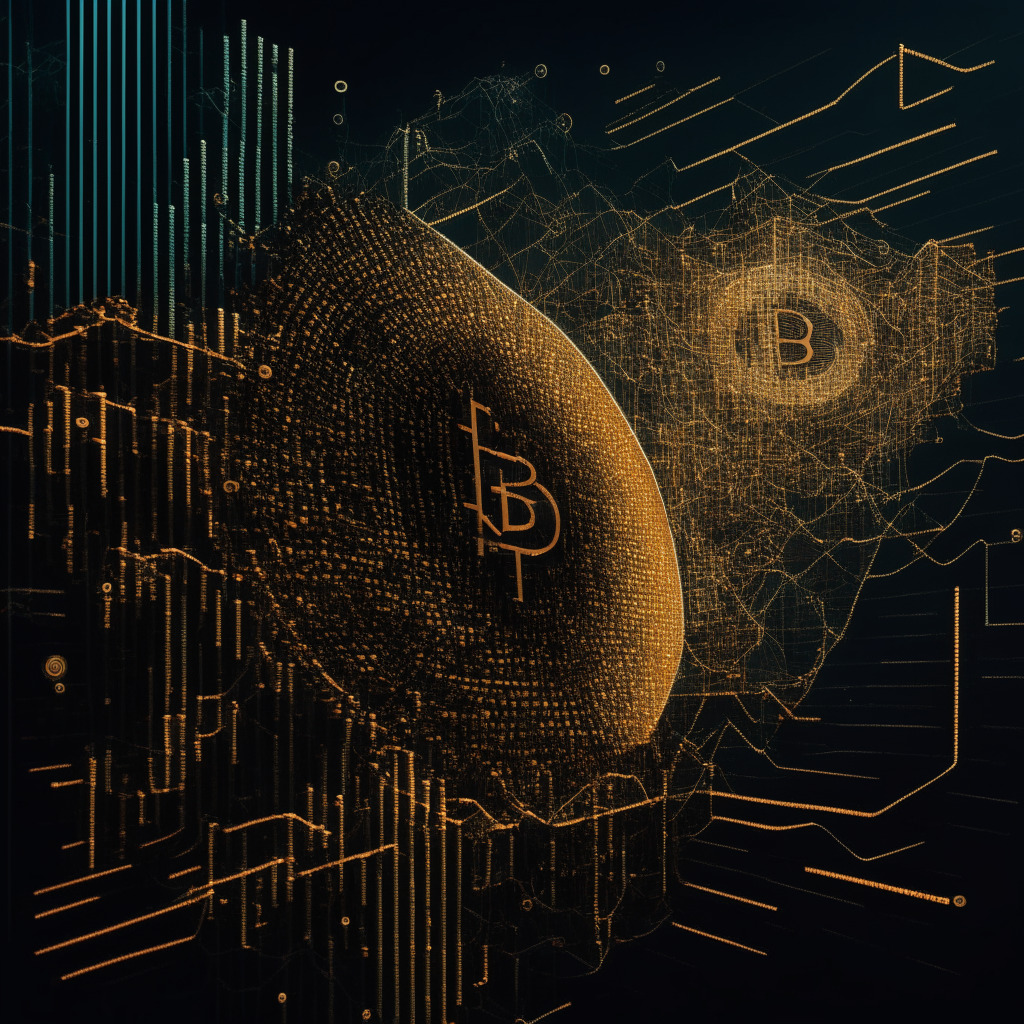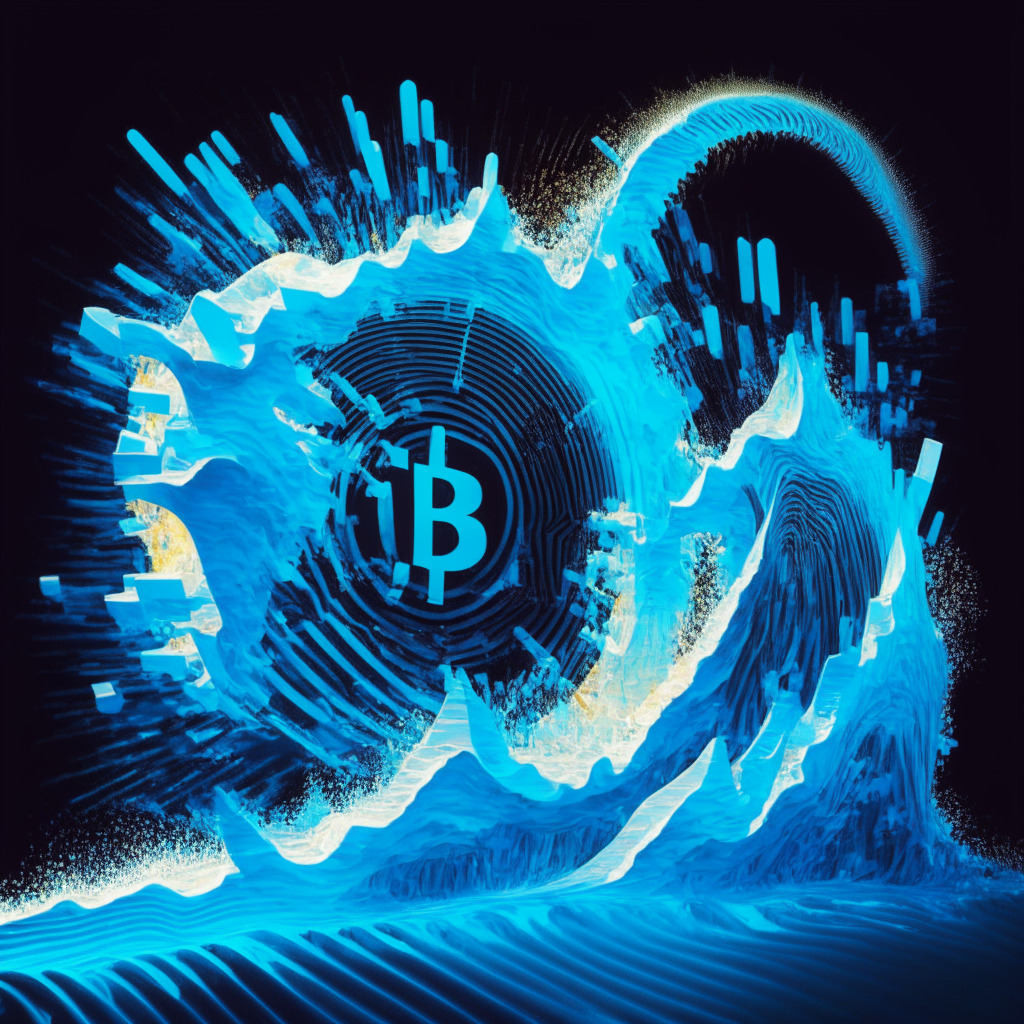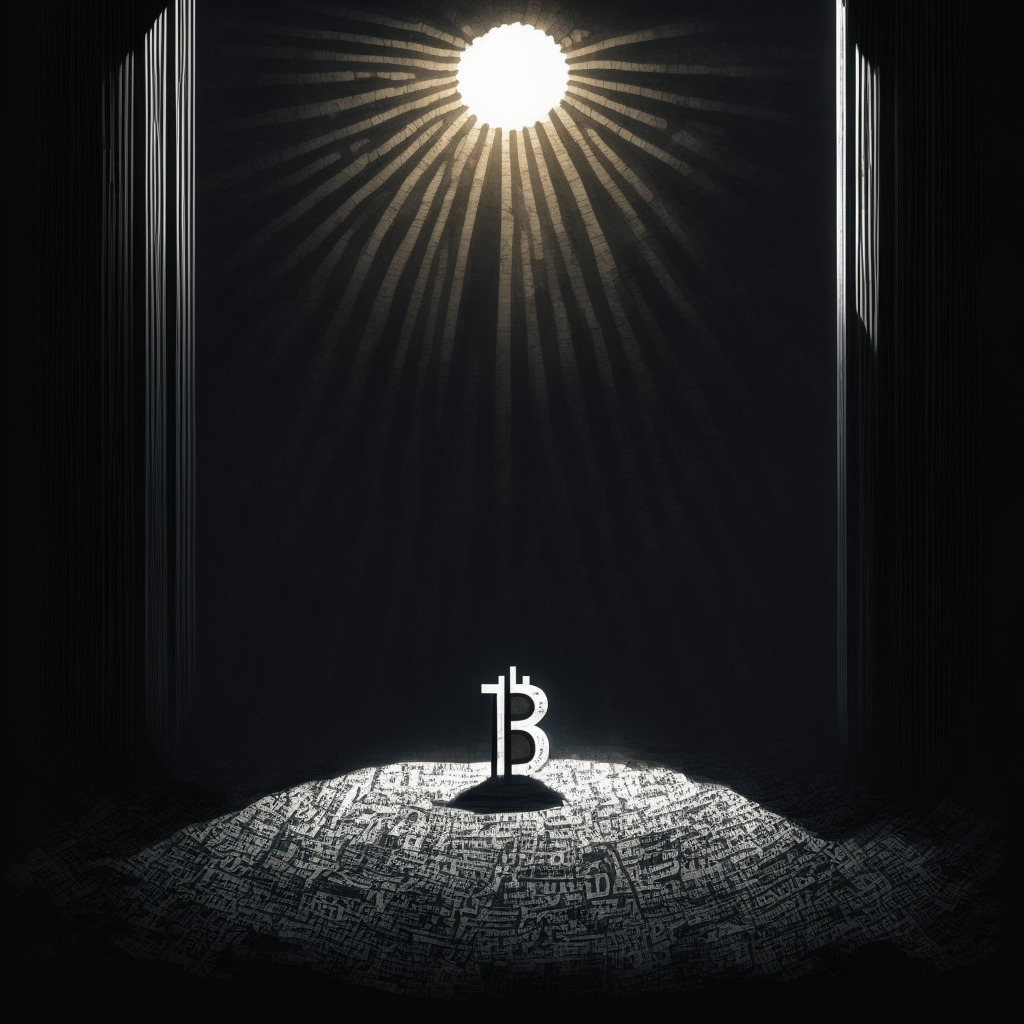“The United States Securities and Exchange Commission (SEC) is delaying its decision on applications for a spot Bitcoin ETF from institutional giants. Additionally, the crypto ATM industry is under scrutiny for alleged illegal behavior and high usage fees, while facilitating convenience and anonymity. Regulatory development is vital for the industry’s well-being and participant safety.”
Search Results for: Securities and Exchange Commission
Spot Bitcoin ETFs: A Challenge for the SEC and a Leap for Crypto Industry
“The triumph of Grayscale, a digital currency asset manager, could increase the possibility of the SEC approving spot bitcoin ETF applications. This has enormous implications for the crypto industry, opening the floodgates for more institutional investors into the market without needing to acquire underlying digital assets.”
Robinhood’s Colossal ETH Holdings Vs Binance’s Calculated BUSD Retreat: Winners and Losers in Crypto Sphere
Robinhood, known for its online brokerage services, has been identified as the fifth largest holder of Ethereum ($2.54 billion worth), serving as a secure depository for user balances. Despite this, Robinhood has seen a decrease in their crypto trading activity. Meanwhile, Binance is winding down support for its Binance USD (BUSD) due to allegations of being an unregistered security.
Crypto Commodities: Bitcoin and Ether and their Legal Status in US Courts
U.S. District Court Judge Katherine Polk Failla recently referred to Ether and Bitcoin as “crypto commodities,” dismissing a lawsuit against decentralized exchange Uniswap. The legal classifications of cryptocurrencies continue to vary, with other digital currencies such as XRP classified as a security. Amidst conflicting views, U.S. lawmakers are yet to determine whether SEC or the CFTC will have authority over digital assets. Specialists suggest these legal classifications are crucial for creating a more organized and regulated crypto environment.
The Grayscale Effect: Cryptocurrency Market Response and Forecast Uncertainty
“Cryptocurrency markets temporarily reenergized after Grayscale’s lawsuit victory against the US Securities and Exchange Commission, yet struggled to sustain gains. Traders seem focused on crypto-specific news, neglecting broader financial trends, indicating the crypto market’s high volatility. Despite the uncertainty, crypto-enthusiasts remain hopeful and persistent in their investment strategies.”
Navigating the Regulatory Landscape: The Evolving Future of NFT Transactions
“The SEC has raised concern over NFT sales and transactions, alleging a company raised $30 million through unregistered NFT transactions. Despite some legal setbacks, proponents view such activities as signs of industry maturation, with corrective measures fostering increased trust in the marketplace.”
Uniswap Lawsuit Dismissal: A precedent for DeFi litigation and future of Regulatory Bodies
Legal proceedings against decentralized exchange protocol Uniswap took a turn as a class action lawsuit was scrapped. This development questioned Uniswap’s compliance with financial regulations, emphasizing their role didn’t mean they owned the traded assets. The removal of this lawsuit could set a precedent for decentralized entities facing similar accusations and underscores the legal intricacies for such organizations.
Bitcoin’s Future: The Effects of a Potential ETF and Market Volatility
The average trade size of Bitcoin on crypto exchanges hit a record high following a federal court ruling that encouraged the U.S. Securities and Exchange Commission (SEC) to reconsider Grayscale Investments’ Bitcoin Trust ETF. Large trader activity increased, effectively driving Bitcoin’s price up by over 7%. However, regulatory uncertainties and market volatility continue to pose challenges.
Bernstein’s Landmark Victory paves way for Bitcoin ETFs: An Era of Hope and Uncertainty
Bernstein’s recent triumph over the SEC signifies a potential shift towards a more open review of Bitcoin ETF applications, following past rejections due to harsh regulations. However, while the SEC is required to review the application and differentiate between future and spot ETFs, it retains its right to refuse approval, suggesting a long road to a final decision.
Surge in Crypto Space: Binance’s Expansion, HashKey Partnership, Patricia Token, and Favorable EOS White listing
“Binance Japan aims to triple its token offerings by listing 100 more. HashKey partners with imToken for digital asset self-management. Patricia, an Nigerian cryptocurrency exchange, launches ‘Patricia Token’, a debt management tool. SEBA Bank’s Hong Kong branch obtains approval-in-principle for securities and virtual asset dealings. EOS is whitelisted by the JVCEA for trading against Japanese yen. Cathedra Bitcoin improves its cryptocurrency mining production.”
Navigating the Stirs of Crypto Volatility: Evergrande Collapse, Grayscale Triumph and Altcoin Security
“In this era of volatility, the potential Evergrande bankruptcy could have a silver lining for the crypto market. Even though insolvencies like Evergrande might signal trouble for risk-driven assets, it could shift investors toward Bitcoin. However, new scams like the disappearance of 16 trillion Pepecoin tokens highlight the need for crypto holders to remain cautious and scrutinize investments.”
Rising Phoenix: XRP’s Resurgence and the Emergence of New Altcoins like WSM
“XRP has seen a 3% gain, boosting its price to $0.529853 and an increase in trading volume to $1.5 billion overnight. Market indications suggest a promising future for XRP, with a 55% price increase since the year’s start. Supporting its optimistic outlook are Ripple’s recent partnerships and steady XRP sales, hinting at stronger performances ahead.”
Stacks (STX) Surge: The Ripple Effect of Grayscale’s Triumph and Promising Altcoin Prospects
“Despite a previous decrease, Stacks (STX) leads today’s cryptocurrency market with a recent surge of 16.5%. This is believed to follow Grayscale’s win with the SEC. The future implications of BTC ETF approvals promise further STX gains, while new opportunities for investors like the Launchpad.xyz (LPX) platform continue to emerge, suggesting the ever-evolving nature of the crypto landscape.”
Robinhood’s Tenuous Ties with Crypto: Navigating Uncertainty and Shifting Alliances
Robinhood has severed ties with market-making partner Jump Trading, a significant player in its crypto ventures. This decision stems from the unstable regulatory landscape and changing internal alliances. Moreover, Robinhood’s recent financial records reveal a drop in interest in crypto trading, with trading figures decreasing by 68% relative to the previous year. Despite this data, Robinhood remains one of the largest bitcoin holders.
GBTC Poised to Erase Bitcoin Price Discount by 2024: Opportunities and Challenges
“The Grayscale Bitcoin Trust (GBTC) may erase its BTC price ‘discount’ by 2024, claims an analysis on the CoinGlass platform. This follows a court victory against U.S regulators that has boosted GBTC performance. However, market conditions, regulatory decisions, and investor behaviour will play major roles in this potential shift in dynamics.”
Bitcoin Bull Run Masterminds: Grayscale’s Legal Triumph and Canaan’s Impressive Q2 Earnings Report
The recent surge in Bitcoin’s price is attributed to Grayscale’s legal victory over the Bitcoin ETF Conversion Lawsuit and Canaan’s impressive Q2 earnings report. This sends a strong bullish signal, potentially driving Bitcoin’s price toward the $28,600 mark.
Rollercoaster Crypto Future: Bitcoin’s Recent Surge and the Mysteries of Market Dynamics
“Yesterday, Bitcoin rallied 6% following a U.S court ruling criticizing the SEC’s decision to refuse Grayscale’s Bitcoin ETF request as “arbitrary and capricious”. This led to speculation about a potential surge in crypto market capitalization, spurred by the movement of 30,000 Bitcoin to centralized exchanges.”
Swiss SEBA Bank Navigates Hong Kong’s Evolving Crypto Regulatory Landscape
The Swiss-based SEBA Bank, known for its crypto friendliness, has made a significant stride towards offering crypto services in Hong Kong, securing approval-in-principle from the city’s Securities and Futures Commission. This move reflects SEBA’s strategic push to align with Hong Kong’s evolving crypto regulations and to strengthen its regulated presence across the Asia Pacific region.
Hong Kong and the Emerging Crypto Landscape: Opportunities and Obstacles Unveiled
SEBA Bank’s Hong Kong arm gained preliminary approval from the Hong Kong Securities and Futures Commission (SFC) to operate virtual asset services. However, the future of the crypto ban in mainland China remains uncertain. This development presents significant opportunities in Hong Kong’s digital asset regulatory framework and potential access to the Chinese market.
Grayscale’s Legal Victory Spurs Bitcoin Surge and Highlights Crypto’s Regulatory Challenges
“Yesterday’s Bitcoin surge was a reaction to the ruling in favor of Grayscale against the SEC, seen as a win for the broader crypto industry. Cryptocurrencies like XDC Network, Wall Street Memes, Avalanche, yPredict, and Algorand emerged as strong candidates in light of this regulatory development. However, approval for the first U.S. Bitcoin ETF is still needed, indicating ongoing regulatory challenges.”
Decoding RECs: Jacobi’s Green Solution to Bitcoin’s Energy Issues and the Regulatory Hurdles
Jacobi Asset Management’s new initiative involves decarbonization achieved through investments in Renewable Energy Certificates (RECs). Through this, Jacobi aims to account for Bitcoin’s carbon footprint in their ETF. However, despite success in Europe, stricter regulation in the US provides notable hurdles for such climate-friendly investments.
Redefining the Crypto Landscape: The Impact of US Court’s Ruling on Bitcoin ETFs
The U.S. Court of Appeals’ recent ruling criticizes SEC’s denial of a bitcoin spot-market ETF as “arbitrary” and “capricious”, fuelling hope for future acceptance. Grayscale Investments’ push for the Grayscale Bitcoin Trust’s transition into an ETF could force SEC to reconsider past rejections.
Navigating Regulatory Challenges: How Robinhood’s Separation from Jump Trading Impacts Crypto Landscape
“Robinhood is separating from trading giant Jump amidst increasing regulatory scrutiny. The broker, which heavily relies on market-making firms like Jump, is now partnering with competitors. This comes as governments crack down on cryptocurrencies, posing challenges for traditional finance maintaining their crypto presence.”
When Blockchain Meets Regulation: A Tale of NFTs, SEC and Unseen Chains
In an unprecedented move, the U.S. SEC has classified a non-fungible token (NFT) as a security, underlining the regulatory complexities as crypto technologies evolve. The incident serves as a warning to crypto projects, revealing that despite the inherent freedom within the crypto landscape, invisible chains bound them when engaging in regulated activities.
Navigating the Gray: Binance, Grayscale, and the Uncharted Legal Landscape of Crypto
“Binance, a leading cryptocurrency exchange, faces possible legal action from the US Securities and Exchange Commission (SEC), potentially linked to violations of sanctions involving Russia. Meanwhile, the SEC and Grayscale experience a landmark clash, highlighting evolving regulatory issues and the role of self-regulation in preserving the balance between financial freedom and investor protection in crypto markets.”
Navigating Regulatory Shifts: Binance’s Shift, Impact Theory’s Legal Woes, and Emerging Blockchain Innovations
“Binance’s Belgian users can now dodge local regulations by accessing the platform via its Polish branch. This resourceful solution permitted them to continue operations within the European Economic Area after the parent company ceased. However, due diligence is important. On the other hand, Venezuela’s key banking institution has been removed from Binance’s P2P payment options due to alleged international financial sanctions.”
Binance and the SEC: Unraveling the Mystery behind the Secret Court Filing
“Binance, the massive cryptocurrency exchange, is facing escalating scrutiny due to a mysterious court filing from the Securities and Exchange Commission (SEC). The filing, controversially submitted under seal, has raised speculations about Binance’s forthcoming predicaments. Among the conjectures, one suggests the SEC is looking to avoid interference with a potential parallel criminal investigation.”
Navigating Regulatory Ambiguity: The SEC, NFTs, and the Future of Crypto Investments
The SEC’s recent enforcement action against an NFT project has caused ripples in the NFT community, raising questions about which projects might be next. The issue of whether NFTs can be classed as unregistered securities is causing concern, with the need for regulatory clarity underlined.
SEC’s Tumultuous Path to NFT Regulations: Impact Theory Tangles and Divergent Views
“SEC Commissioners Hester Peirce and Mark T. Uyeda express concerns over broad-sweeping regulation of the diverse NFT market, citing potential complications for creators and the need for more scrupulous consideration before enforcement attempts.”
Regulatory Spotlight on Impact Theory: An Examination of NFTs as Crypto Asset Securities
Los Angeles-based Impact Theory recently raised nearly $30 million via non-registered sale of non-fungible tokens (NFTs). Considered as crypto asset securities by the SEC, the company has allegedly violated federal securities regulations. Now under SEC scrutiny, the company is obliged to pay over $6.1 million as part of a settlement.
Urgent Anticipation: SEC Verdict on Major Bitcoin ETF Applications and the Crypto Industry’s Future
The U.S. SEC’s impending response to Bitcoin ETF applications from top financial firms like BlackRock, VanEck, Invesco, Bitwise, and WisdomTree represents a crucial phase in integrating cryptocurrencies with conventional financial markets. The SEC’s decision could indicate some significant implications for the crypto industry’s future.
Bankruptcy Judge’s Hesitation on Crypto Tokens as Securities: A Case Study of Celsius
The bankruptcy judge recently declined to classify CEL, Celsius’s native token, as a security amid Ripple Labs and SEC’s ongoing legal issues. CEL’s business model significantly deviated, being referred to as “insolvent since inception” by a court-appointed examiner, who suggested CEL was part of a problematic scheme. The rising token value benefits the company but raises concerns about ethical considerations and customer implications.



